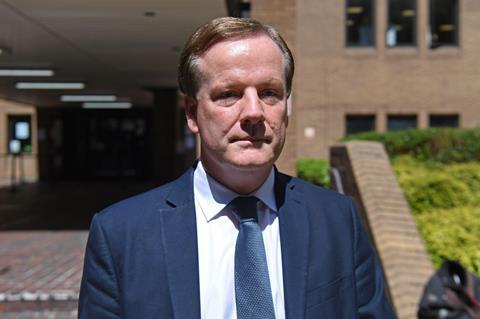A former MP has managed to wipe 20% off the costs he will have to pay to a newspaper after an unsuccessful libel claim.
Charles Elphicke, a former solicitor and MP for Dover, had discontinued his claim against the owner of the Sunday Times which reported that he was being investigated over allegations of rape.
Costs rules state that a claimant who discontinues before trial should pay the defendant’s costs in full, but Elphicke argued that the court had discretion to depart from that because of the newspaper and its journalist’s subsequent conduct.
Elphicke, representing himself in Charles Elphicke v Times Media Ltd, submitted that, after the discontinuance of the case, the defendant made wrongful use of the disclosed evidence in hard copy articles and on social media. The article had reported that a witness who had submitted a statement was ‘defending’ Elphicke and ‘maintaining his innocence’.
Elphicke further submitted that the defendant breached its duties to preserve disclosable material. London firm Carter Ruck, then acting for him, had requested an undertaking from the newspaper to preserve all communications between the Sunday Times and third parties connected to the investigation. The defendant’s in-house solicitor replied to say it was aware of its obligations about document retention.
But some four months after this, the journalist’s phone was lost and with it critical text messages. Elphicke said this information should have been preserved immediately and there was a positive duty to retain documents held by employees.

In her final judgment, Master McCloud (Victoria McCloud), who had overseen previous hearings, ruled on the issue of whether to reduce the costs payable. She concluded that the failures to preserve evidence when on notice to do so and misuse of statements for collateral purposes were ‘both serious matters’. She ordered Elphicke to pay 80% of the defendant’s costs on the standard basis, to be assessed if not agreed.
She also included a provision that the parties must engage in alternative dispute resolution as to the costs claimed by the newspaper group. Any party which decides not to engage in ADR or to call it off ‘must be in a position to justify that non-engagement to the costs judge’, added McCloud.
As a separate issue, McCloud considered her own recusal ahead of the hearing. She said that the case involved an allegation of rape against a woman and suggested there was a belief among some people that transgender women like her might be biased against women.
‘The dilemma for the sole judge from the transsexual community is that all judges are appointed by the Crown, must bear the Crown’s trust and confidence, and cannot remain if they lose that trust,’ she said. McCloud explained that no objection was put by either side and that it was unlikely that a fair minded, reasonable member of the public would consider there was a real risk of bias.


























